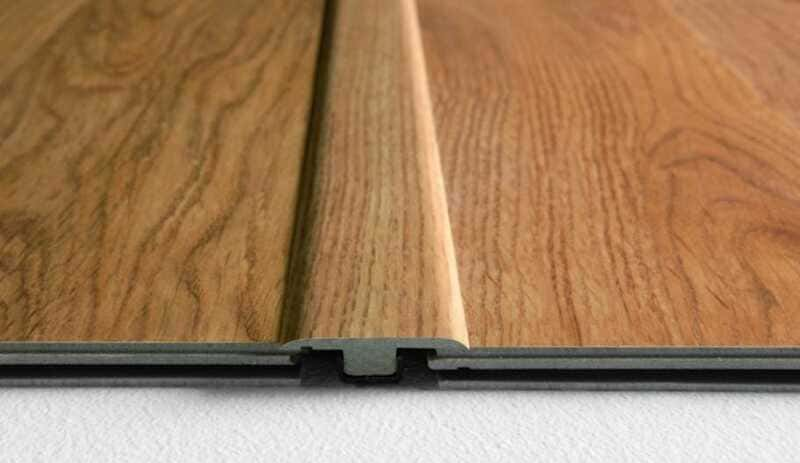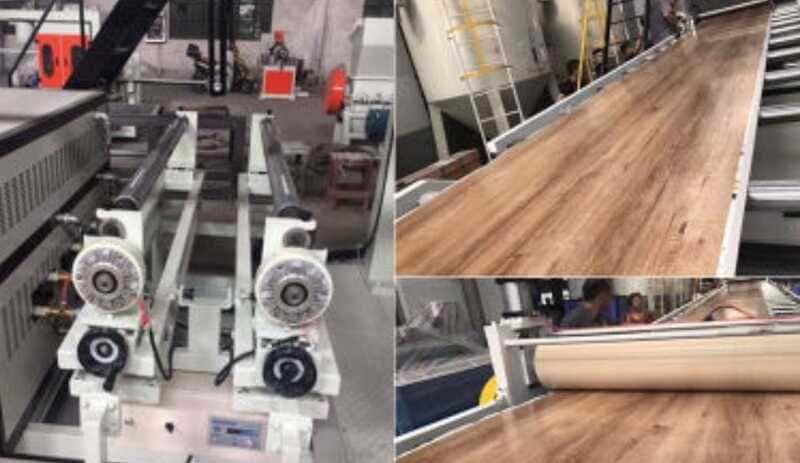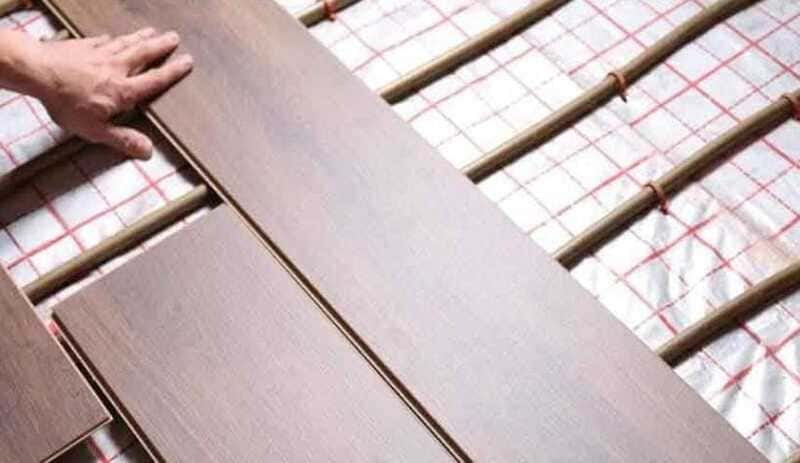Vinyl flooring has become a popular choice for many homeowners due to its durability, ease of maintenance and affordable cost compared to other types of floor coverings. However, in recent years, there has been growing concern over whether vinyl flooring expands, which can cause long-term aesthetic and structural problems.
In this article, we will examine whether vinyl flooring expands and explore the factors that contribute to such expansion, as well as preventive and corrective measures that can be taken to address this problem.

We will also look at the long-term effects of vinyl flooring expansion on floor quality and discuss any regulations or industry standards that regulate this problem. In the end, we hope to provide a more complete and useful understanding of vinyl floor expansion to help homeowners make informed decisions about their flooring choices.
What is vinyl flooring and how is it manufactured?
A determining factor in whether vinyl flooring expands is how it is manufactured. Vinyl flooring is a type of floor covering that is manufactured from polyvinyl chloride (PVC) and other composite materials. It is a synthetic material that has been used since the 1930s in a wide variety of applications, including floor coverings.
The vinyl flooring manufacturing process involves the combination of several components, including PVC resins, plasticizers, stabilizers, pigments and other additives. These ingredients are mixed together to form a uniform paste that can be molded into thin sheets.

Once the vinyl sheet has been formed, a decorative layer can be added, which can be a photographic print of wood, stone or any other design. This decorative layer is placed over the vinyl sheet using a specialized printing technique.
The decorative layer is then covered with a clear urethane coating that protects the surface of the vinyl sheet and the decorative layer from abrasion and scratch damage.
Vinyl flooring can be manufactured in a variety of formats, including slabs, tiles or roll-up sheets. There are also different types of vinyl flooring, such as roll vinyl flooring, luxury vinyl flooring (LVT) and composite vinyl flooring (WPC).
What causes vinyl flooring to expand?
Vinyl flooring expansion is a common problem that can occur for a number of reasons. In general, expansion occurs when the ambient temperature and humidity change, which causes the vinyl flooring to expand and expand.
One of the main factors contributing to vinyl flooring expansion is moisture. If vinyl flooring is installed in a room with high humidity, such as a bathroom or kitchen, it can absorb moisture and expand. In addition, exposure to moisture can cause the vinyl sheet to swell and separate from the underlayment.
Another factor that can contribute to vinyl flooring expansion is temperature. If the ambient temperature rises, the vinyl sheet may expand and expand. Similarly, if the ambient temperature drops, the vinyl sheet may contract and shrink. In both cases, expansion and contraction can affect the structural integrity of the vinyl flooring and cause cracking or separation at the joints.

Finally, the quality of the vinyl flooring installation can also affect its tendency to expand. If vinyl flooring is installed without allowing enough room for expansion and contraction, it can build up stresses and strain the vinyl sheet. Problems can also occur if the sheet vinyl is not installed properly, which can cause wrinkling, bubbling and other deformations that can contribute to vinyl flooring expansion.
How can vinyl flooring expansion be prevented or reduced?
Once you have determined if vinyl flooring is expanding, you need to know if it can be prevented. Vinyl floor expansion can be a costly and frustrating problem for homeowners, but there are steps that can be taken to prevent or reduce it.
One of the most effective ways to prevent vinyl floor expansion is to control the humidity in the room where it is installed. If vinyl flooring is installed in a room with high humidity, such as a bathroom or kitchen, ensure good ventilation and keep the humidity level under control. A dehumidifier can also be installed to help reduce the humidity in the air.

Another way to prevent expansion of vinyl flooring is to keep the room temperature constant. If the temperature varies too much, the vinyl sheet may expand or contract, which can cause cracking or separation at the joints. Exposure of vinyl flooring to extreme temperature changes, such as direct sun or cold drafts, should be avoided.
In addition, it is important to follow the manufacturer’s recommendations for vinyl flooring installation. It is necessary to allow enough room for expansion and contraction of the vinyl flooring and to ensure that the vinyl sheet is installed correctly and evenly. It is also important to use high quality adhesives and sealants to prevent moisture ingress and reduce the possibility of expansion.
Finally, if expansion of the vinyl flooring has already occurred, steps can be taken to reduce or remedy it. The cause of the expansion should be identified and steps taken to correct it, such as fixing ventilation or insulation. If the problem is the quality of the installation, a professional can be contacted to repair or reinstall the vinyl flooring.
How can vinyl flooring that has expanded be repaired?
If your vinyl flooring has expanded, it is important to repair it to prevent further damage and prolong the life of the flooring. Fortunately, there are several options for repairing vinyl flooring that has expanded.
One of the easiest ways to repair vinyl flooring that has expanded is to cut the vinyl sheet in the affected area and glue it back in place. To do this, you must carefully lift the vinyl sheet off the underlayment and cut the affected area with a sharp knife. Once the vinyl sheet has been cut, a quality adhesive should be applied and the sheet glued back in place. Care should be taken to ensure that there are no air bubbles and that the sheet is level and well adhered to the underlayment.
Another option for repairing vinyl flooring that has expanded is to replace the entire vinyl sheet in the affected area. This option is more expensive and requires more work, but may be necessary if the expansion is too great or if there is significant damage to the vinyl sheet. To replace the vinyl sheet, the affected sheet must be cut and carefully removed from the underlayment. Then, a new vinyl sheet of the appropriate size should be cut and glued in place using a quality adhesive.
In some cases, the expansion of the vinyl flooring may be so great that it cannot be effectively repaired. In these cases, the option of replacing the entire vinyl flooring may be considered. If this option is chosen, it should be ensured that the cause of the expansion has been addressed before installing the new vinyl flooring.
Which brands of vinyl flooring are most affected by expansion and why?
In general, most vinyl flooring can be affected by expansion, but some types of flooring and brands may be more prone to this problem than others.
One brand of vinyl flooring that has had expansion problems in the past is Armstrong. Vinyl flooring from this brand has expanded on a few occasions due to problems with the underlayment or with installation. Also, some of Armstrong’s vinyl flooring has a foam core that may be more prone to expansion than other materials.
Another brand that has had expansion problems in the past is Congoleum. Some of this brand’s vinyl flooring has expanded due to moisture absorption or lack of ventilation in the room. In addition, Congoleum vinyl flooring that has a foam backing may also be more prone to expansion.
In general, any brand of vinyl flooring can be affected by expansion if installed incorrectly or if exposed to adverse conditions. It is important to choose a quality brand and ensure that the installation is done correctly to minimize the risk of vinyl flooring expansion. In addition, it is important to maintain proper room temperature and humidity to prevent moisture absorption and expansion of the vinyl flooring.
